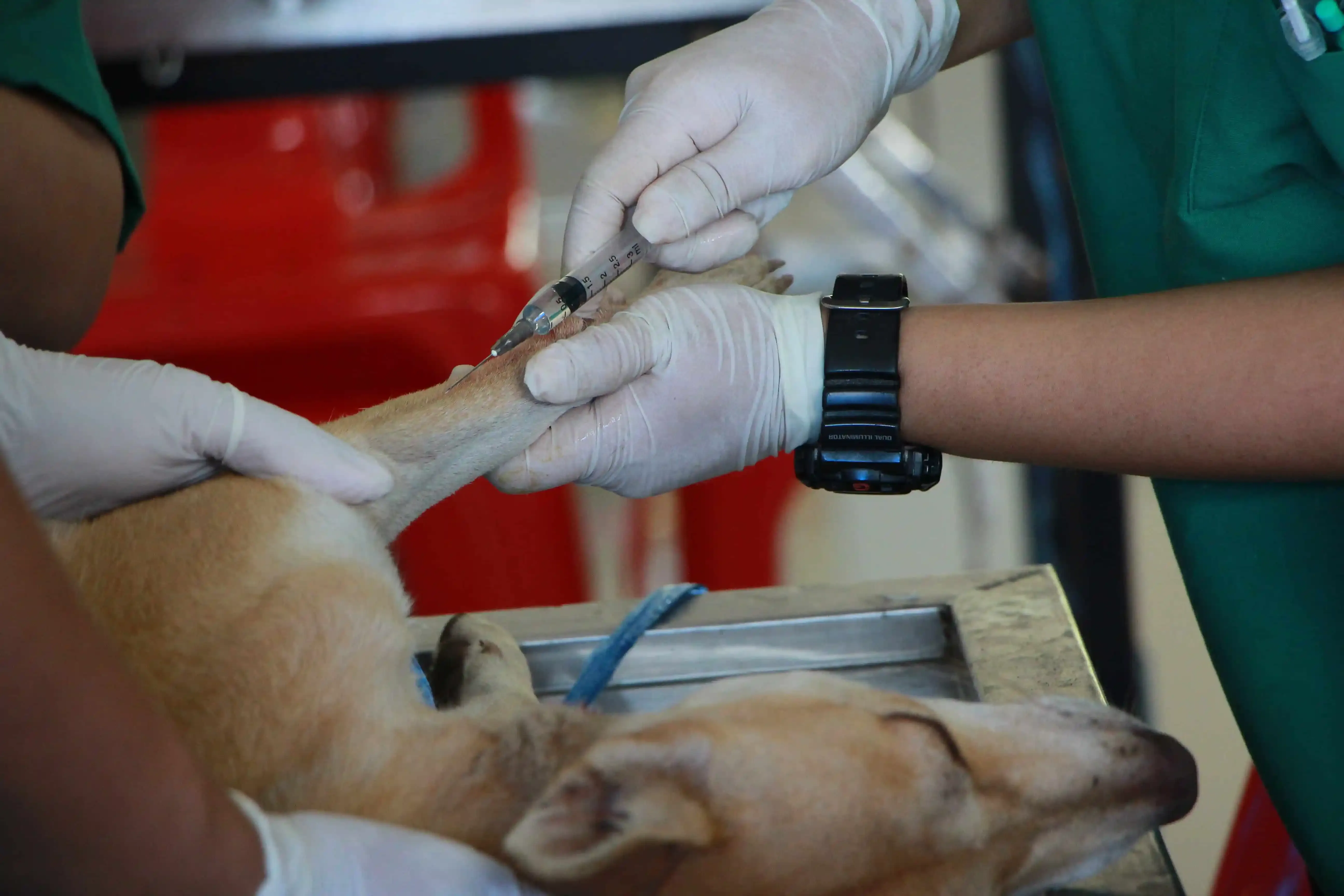Dealing with intestinal parasites in dogs is a common concern for many pet owners. Worms can not only cause discomfort and illness in your canine companions but also pose potential health risks to humans, especially children. While veterinary-prescribed medications are often the go-to solution, many dog owners are interested in exploring natural, home-based remedies for deworming their dogs. This guide dives into effective Home Remedies To Deworm Dogs, backed by expert knowledge and practical advice to ensure your furry friend stays healthy and parasite-free.
The prevalence of worms in dogs is significant, with common types including heartworms, roundworms, hookworms, tapeworms, and whipworms. These parasites are typically contracted through contaminated environments, ingesting infected material, or even from mother to puppy. Regular deworming is crucial, even if your dog appears perfectly healthy, as early detection and treatment can prevent severe health complications.
Understanding the Signs of Worms in Dogs
Recognizing the symptoms of worm infestation is the first step towards effective treatment. While some dogs may not exhibit obvious signs, especially in the early stages, persistent or severe infections can manifest in several ways:
- Weight Loss: Unexplained decrease in body weight despite a normal or increased appetite.
- Diarrhea: Loose stools, which may sometimes contain blood or visible worms.
- Dry, Dull Coat: A loss of shine and texture in the dog’s fur.
- Vomiting: Occasional vomiting, which might contain worms.
- Scooting/Rubbing Rear End: The dog dragging its bottom on the ground to relieve irritation.
- Visible Worms in Stool: Observing segments or whole worms in your dog’s feces.
- Lethargy and Low Energy: A noticeable decrease in playfulness and overall activity.
- Changes in Appetite: Either a significant increase or decrease in food intake.
- Abdominal Swelling: A distended belly, particularly noticeable in puppies.
- Coughing or Difficulty Breathing: In cases of lungworm or heartworm migration.
- Anemia: Pale gums and general weakness due to blood loss from hookworms.
If you suspect your dog has worms or notice any of these symptoms, consulting a veterinarian is essential. While natural remedies can be effective for mild to moderate intestinal worm infestations, severe cases or specific types of worms like heartworms require professional veterinary diagnosis and treatment.
 Dog showing symptoms of worms, such as scooting or lethargic behavior
Dog showing symptoms of worms, such as scooting or lethargic behavior
Effective Home Remedies to Deworm Dogs
The use of natural ingredients has been a practice for centuries in both human and animal healthcare. When it comes to deworming dogs, several fruits, vegetables, and herbs offer potent anthelmintic (anti-worm) properties.
1. Fruits and Vegetables: Nature’s Gentle Cleanse
Many common fruits and vegetables are rich in fiber and natural compounds that can help expel intestinal parasites. Incorporating these into your dog’s diet can be a delicious and effective way to support their digestive health and combat worms.
- Carrots: These crunchy root vegetables are a great source of beta-carotene and fiber. The rough texture of raw carrots can also help scrape away intestinal parasites and clean the digestive tract. Ensure carrots are finely grated or chopped to prevent choking hazards.
- Beetroot: Beetroot is known for its cleansing properties, particularly for the liver, and can help remove toxins left by worms. It also contains fiber that aids in digestion. Raw beetroot can be challenging for some dogs to digest, so it’s best to offer it shredded or lightly steamed. Alternatively, opt for dog treats made from natural beetroots which are easier to manage and digest.
- Banana: Bananas are packed with potassium and contain natural enzymes that can help break down and eliminate intestinal worms. Offer ripe bananas in moderation as part of your dog’s diet.
- Apple: Apples, particularly the skin, contain pectin, a soluble fiber that can help the digestive system move waste and parasites out of the body. Always remove the core and seeds, as apple seeds contain a small amount of cyanide.
- Coconut: Both coconut oil and shredded coconut have shown promise in deworming. Coconut oil contains medium-chain fatty acids (MCFAs) like lauric acid, which can have anthelmintic effects. Shredded coconut, with its fiber content, can also help in expelling worms. You can add a small amount of virgin coconut oil or shredded coconut to your dog’s food.
- Papaya: Papaya is a powerhouse of nutrients, and its seeds and fruit are particularly beneficial for deworming. The fruit contains an enzyme called papain, which can help break down intestinal worms. Papaya seeds, on the other hand, possess anti-amoebic properties that are effective against various intestinal parasites. You can feed your dog small amounts of ripe papaya fruit or a few crushed papaya seeds.
 A variety of fresh fruits and vegetables like carrots, apples, and bananas
A variety of fresh fruits and vegetables like carrots, apples, and bananas
2. Turmeric: The Golden Healer
Turmeric is a potent spice renowned for its powerful anti-inflammatory, antioxidant, and antiseptic properties. These qualities make it an excellent natural remedy for supporting gut health and combating parasitic infections. Turmeric can help reduce inflammation in the digestive tract and aid in flushing out toxins left behind by worms.
While feeding turmeric directly can be challenging for some dogs due to its strong taste and potential for staining, many treats infused with turmeric offer a palatable and convenient way to administer its benefits. Look for treats specifically formulated for dogs that incorporate turmeric for its healing properties and appealing taste.
3. Pumpkin Seeds: A Natural Worm Paralyzer
Pumpkin seeds are a well-known natural dewormer for dogs, thanks to their high content of cucurbitacin. This compound is an amino acid that can paralyze the worms, preventing them from attaching to the intestinal wall. As a result, the paralyzed worms are easily passed out of the dog’s system during bowel movements.
To use pumpkin seeds, grind raw, unsalted, and unroasted pumpkin seeds into a fine powder. You can then mix a small amount of this powder into your dog’s food. A general guideline is about 1 teaspoon of pumpkin seed powder per 10 pounds of body weight, administered once a day for a week. Consider dog treats with pumpkin for a tasty and convenient option.
4. Cloves: Potent Antiseptic Properties
Cloves are another powerful natural remedy with strong antiseptic and antiparasitic properties. They can help kill intestinal worms and bacteria. When used correctly and in moderation, crushed cloves can be added to your dog’s food as a deworming agent.
It is crucial to use cloves sparingly, as excessive amounts can be harmful. A common recommendation is to add a small pinch of crushed cloves to your dog’s food once a week. If the infestation persists, you can repeat it for a second week, but it’s vital not to overdo it. If symptoms don’t improve, consult your veterinarian. Important Note: Cloves can stimulate uterine contractions and should never be given to pregnant dogs.
5. Papaya Seeds: Effective Against Intestinal Worms
As mentioned earlier, papaya seeds possess significant anti-amoebic properties that are highly effective against various types of intestinal worms. The enzyme papain found in the fruit also aids in the expulsion of these parasites.
To administer, you can feed your dog a few crushed papaya seeds mixed with their food. The taste can be a bit peppery, so it’s best to start with a small amount to see if your dog tolerates it well. Combining this with ripe papaya fruit can enhance the deworming effect.
Prevention is Key: Minimizing Worm Risks
While home remedies offer a natural approach to deworming, prevention plays a vital role in keeping your dog healthy and worm-free. Implementing good hygiene practices and regular check-ups can significantly reduce the risk of parasitic infections.
- Maintain a Clean Environment: Regularly clean your dog’s living area, bedding, and yard. Promptly remove and dispose of feces to prevent the spread of worm eggs.
- Prevent Fecal Ingestion: Discourage your dog from eating feces, whether their own or those of other animals.
- Regular Veterinary Check-ups: Schedule routine visits to your veterinarian for check-ups and fecal tests. This allows for early detection of worms and professional advice on deworming protocols.
- Avoid Stagnant Water: Never allow your dog to drink from puddles or stagnant water sources, as these can be breeding grounds for parasites.
- Control Pests: Take measures to control rodents and fleas, as these can act as intermediate hosts for certain types of worms.
- Use Vet-Recommended Preventatives: Discuss with your veterinarian about appropriate monthly flea, tick, and heartworm preventative medications.
Important Considerations and Unknown Facts
It’s essential to be aware of some lesser-known facts about dog worms and deworming:
- Asymptomatic Infections: Dogs can carry worms without showing any visible symptoms, making regular check-ups crucial.
- Scooting is Not Always Worms: While scooting can indicate worms, it can also be a sign of anal gland issues or other irritations.
- Zoonotic Potential: Some dog worms can be transmitted to humans, making it vital to maintain good hygiene and deworm your dog regularly, especially if children are in the household.
- Worm Complications: Untreated worm infestations can lead to severe damage to internal organs, anemia, malnutrition, and even death.
Deworming your dog regularly is a cornerstone of responsible pet ownership. By understanding the signs of worms, utilizing effective home remedies, and focusing on preventative measures, you can ensure your beloved canine companion enjoys a long, healthy, and active life, free from the burden of parasites. Consider integrating dental chews into their diet, which can contribute to overall health and indirectly support their well-being.
